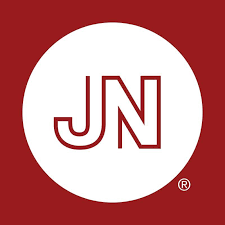
Editor's Note What a week it was! The 2025 OR Manager Conference just wrapped up at the Anaheim Convention Center, and perioperative leaders are already talking about what is next. Mark your calendars—the 2026 OR Manager Conference is heading to Savannah, Georgia, at the Savannah Convention Center on October 5–7,…

Editor's Note Hold everyone to the same standard, model the behavior you expect, and build trust through transparency—that is how OR leaders retain nurses and improve performance, according to this session’s panel that included Taneka Curtis, MHA, BSN, RN, CNOR, nurse manager-cardiac, transplant and vascular service lines, Hospital of the…

Editor’s Note New nurse leaders thrive when organizations invest in practical training and relationships, according to Aubrey Pepper, MSN, RN, DHA, CNOR, NE-BC, senior director of surgical services at St Jude Children's Research Hospital. In this session, Pepper said the most predictive skill for a smooth clinician-to-leader transition is “relationship…

Editor's Note Even the most experienced nurses sometimes wonder, “Am I good enough?” That is how Laurie Burns MSN, RN, CNOR, RNFA, CIRT, clinical nurse educator, operating room; Aliaunda Macon, BSN, RN, staff nurse; and Simone Nicholson, DNP, MSN, RN, CNOR, nurse manager main operating room at Main Line Health…

Artificial intelligence (AI) has made inroads into nearly every area of healthcare. With nursing shortages continuing—marked by the loss of some 100,000 nurses following the COVID-19 pandemic and projected deficits of 20% or more in some states—AI-based tools that improve access to information, streamline efficiency, monitor patients, track procedures, and…

Editor's Note Hands-on, simulation-based education can dramatically raise confidence and communication among perioperative teams learning robotic-assisted surgery, AORN Journal October 22 reports. The article profiles how one nurse leader at Duke University Hospital built a comprehensive robotics training program that helped staff achieve near-total confidence in managing robotic systems safely…

Editor's Note The Centers for Medicare & Medicaid Services (CMS) announced the launch of a new model using artificial intelligence (AI) to target unnecessary Medicare spending, the agency reported in an October 17 update. The voluntary model will run from January 1, 2026, through December 31, 2031, and aims to…

Editor's Note Lock in system-level wins fast. The 2025 OR Manager Conference is right around the corner (October 28–30 in Anaheim, California), and it is loaded with how-to sessions that turn ideas into throughput, revenue, and workforce results you can bring home in Q4. This year’s agenda centers on pragmatic,…

Editor's Note A new study shows hospitals can meaningfully reduce unnecessary preoperative testing for healthy patients undergoing low-risk surgeries without compromising safety or workflow, JAMA Network October 6 reports. The “Right-Sizing Testing Before Elective Surgery” (RITE-Size) strategy successfully lowered testing rates from 68.0% to 40.3% across three Michigan hospitals, while…

Editor's Note The Joint Commission has made nurse staffing a national benchmark for hospital accreditation, formally recognizing it as a core measure of patient safety and care quality, Nurse.org October 13 reports. For the first time, hospitals must meet specific staffing standards to earn or maintain accreditation. Under the new…